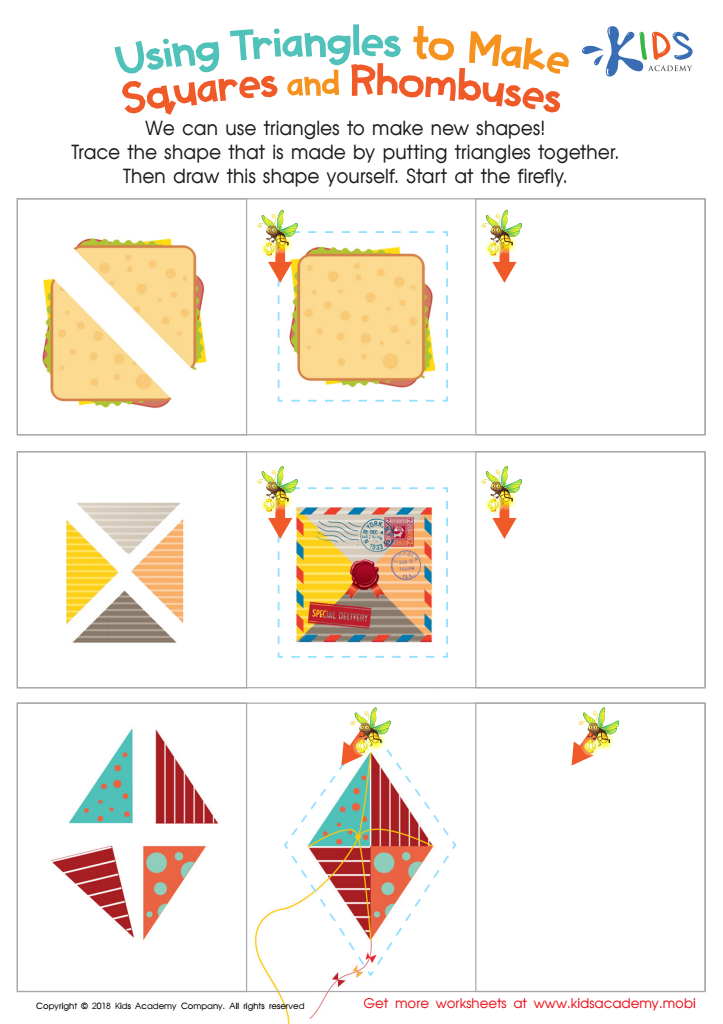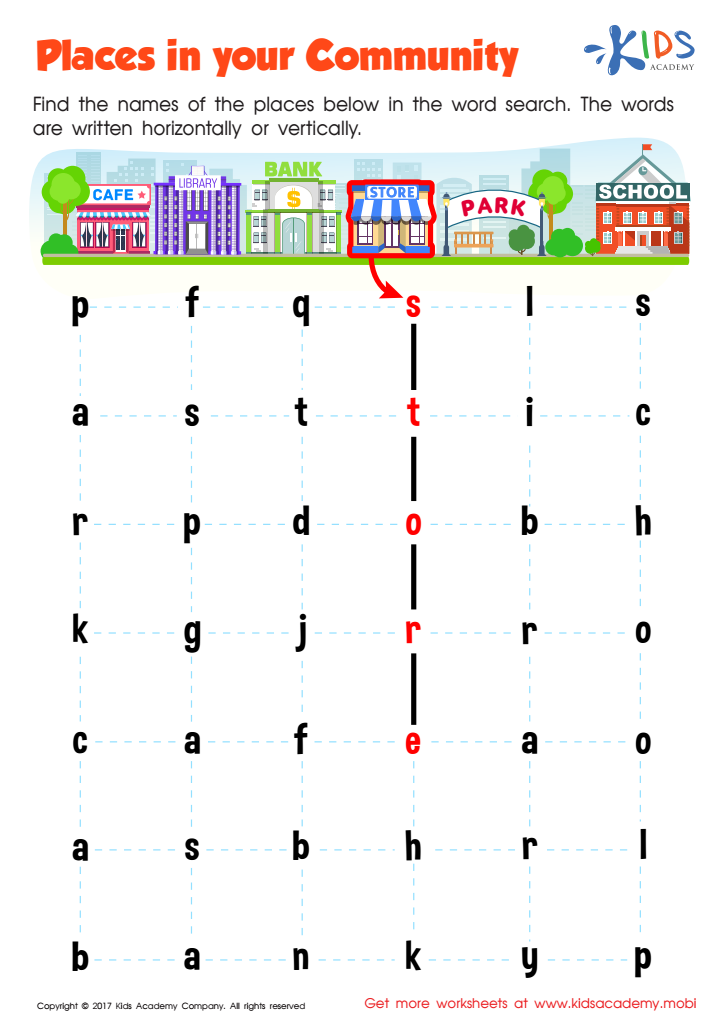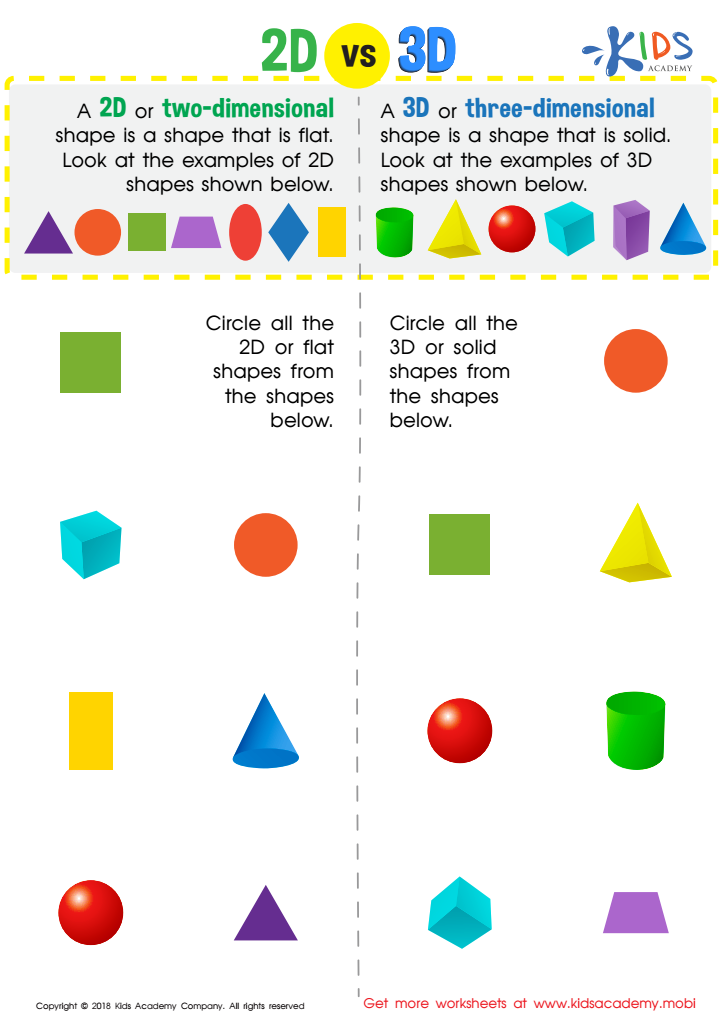Spatial understanding Normal Worksheets
3 filtered results
-
From - To
Improve your child's spatial awareness with our comprehensive collection of normal worksheets focused on spatial understanding! These engaging and educational worksheets are specially designed to help young learners develop crucial skills such as recognizing shapes, patterns, spatial relationships, and directions. Perfect for preschoolers and early elementary students, each worksheet incorporates fun activities like puzzles, matching games, and drawing exercises to make learning enjoyable and effective. Foster your child's cognitive development and problem-solving abilities with our expertly crafted spatial understanding worksheets. Visit Kids Academy now to access and print these valuable resources for free!


Using Triangles to Make Squares and Rhombuses Worksheet


Places in Your Community Worksheet


2D vs 3D Shapes Worksheet
Spatial understanding is a crucial aspect of cognitive development that enables children to comprehend the relationships between objects in their environment. Parents and teachers should care about fostering spatial skills because they play a foundational role in numerous everyday tasks and academic subjects. Strong spatial abilities allow children to navigate spaces effectively, understand and create maps, and progress in activities requiring hand-eye coordination, such as sports and art.
In academics, spatial understanding is particularly critical for success in STEM (Science, Technology, Engineering, and Mathematics) subjects. For instance, spatial skills are essential for solving geometry problems, understanding graphs, and visualizing scientific concepts. Children who develop these skills early on are often more confident and proficient in tackling complex mathematical and scientific challenges.
Additionally, spatial understanding is linked to improved problem-solving abilities and critical thinking. When children manipulate objects or visualize transformations in their minds, they enhance their capacity to think abstractly and to recognize patterns, which are skills transferable to various educational and real-life situations.
Therefore, by emphasizing spatial understanding, parents and teachers can support children’s overall cognitive development, positioning them for future academic success and improving their ability to interact meaningfully with the world around them. Activities such as playing with building blocks, cutting with scissors, and engaging in puzzle-solving are practical ways to nurture these crucial skills from an early age.

 Assign to My Students
Assign to My Students





.jpg)









